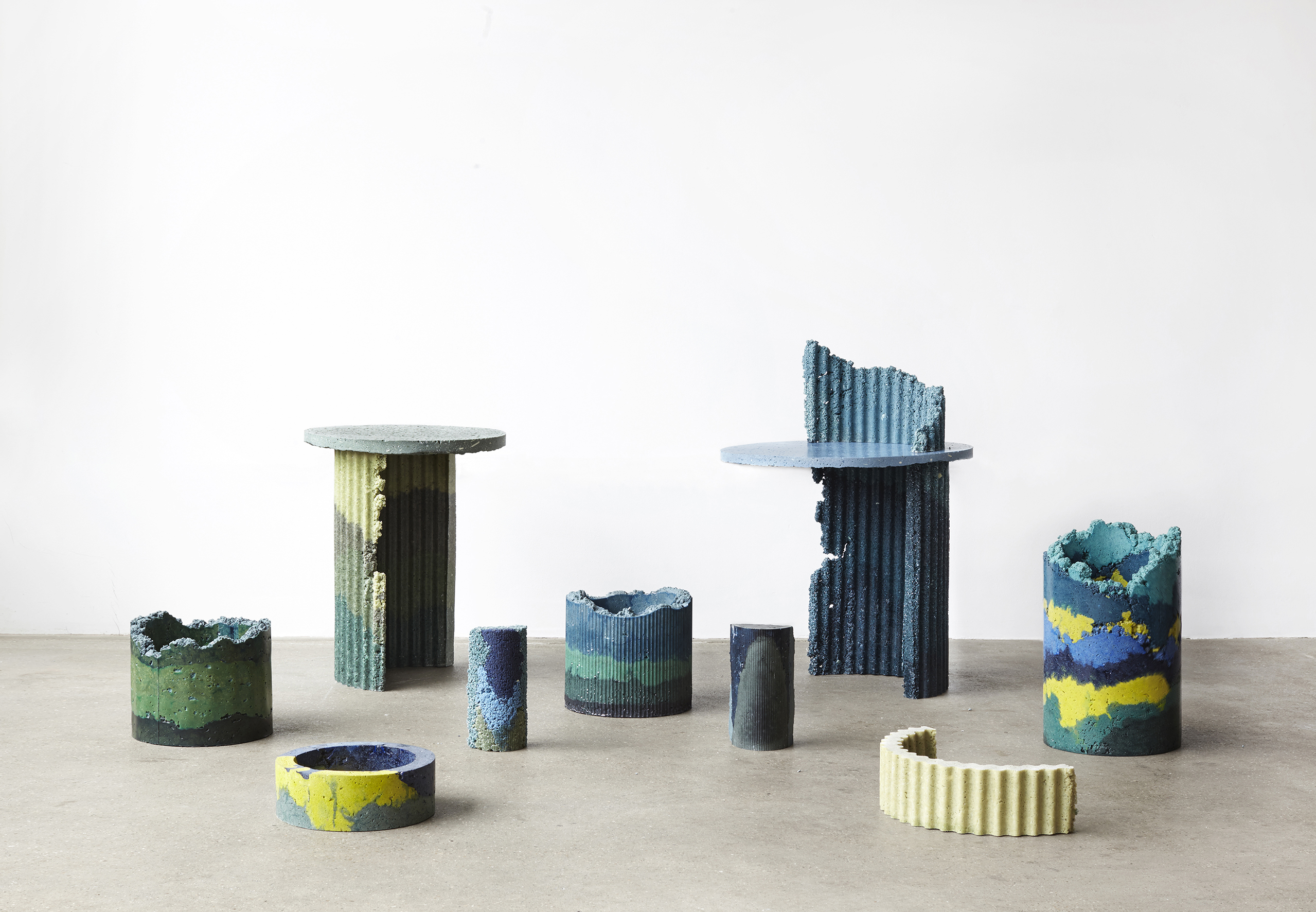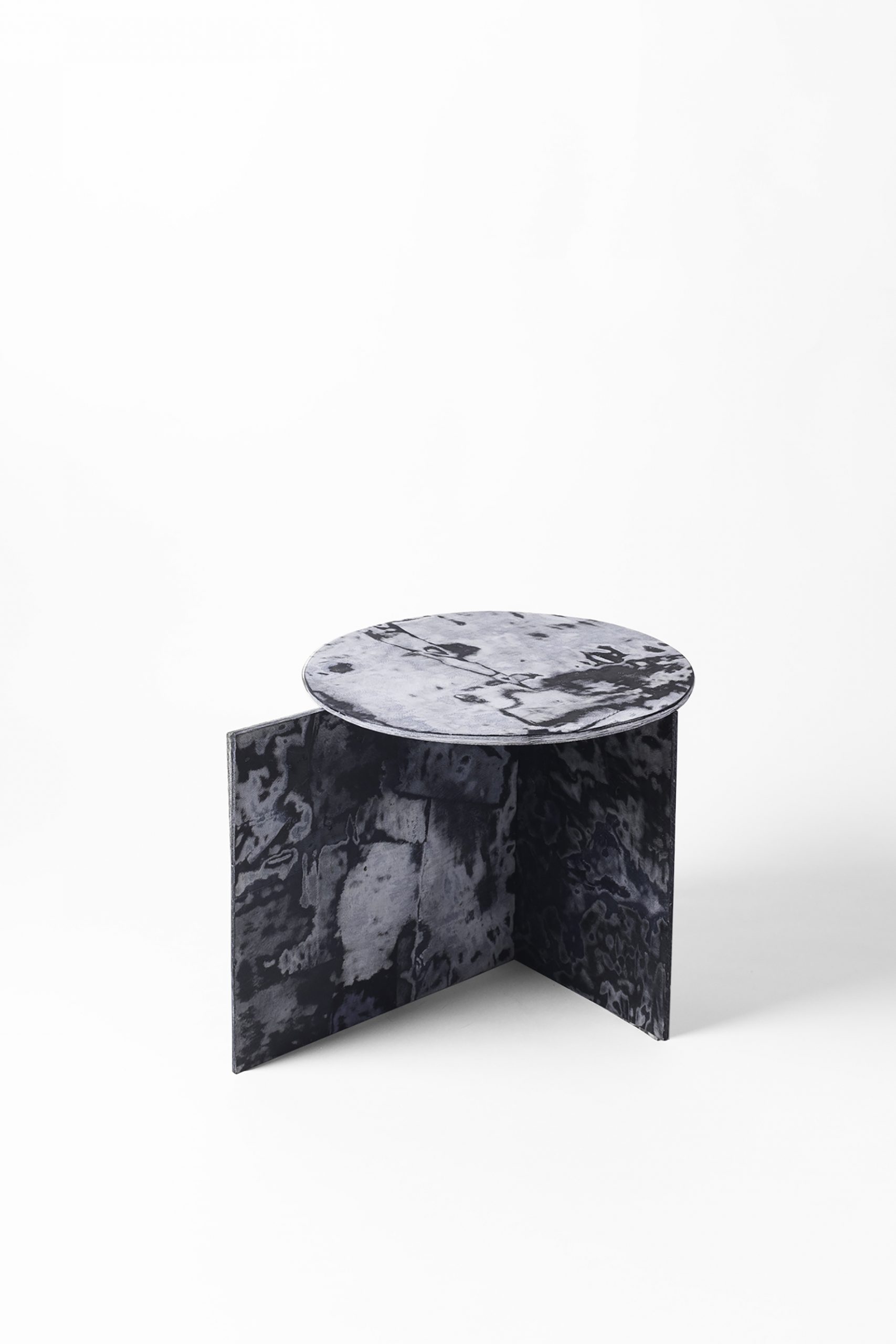The new book Wasted celebrates designers and companies turning trash into treasure
WASTE
NO MORE
INSPIRATION

Journalist Katie Treggidens inspiring book Wasted: When trash becomes treasure celebrates 30 designers, makers and manufacturers who use waste as their primary resource, offering insights to their work and thought processes. Amongst the featured companies is Swedish Kasthall with their hand tufted wool carpet Flourish made of left over yarns, and Studio Swine with their Sea Chair which is made entirely from plastic they’ve recovered from the oceans in a collaboration with local fishermen.
“One of the most shocking discoveries I made researching this book was that for every sack of trash you or I throw away, 70 sacks of rubbish have been generated by the processes that went into making its contents – mining, agriculture and manufacturing. We must all take responsibility for our own actions, but it is changes at business and policy level that will really make an impact,” Treggidens says.
TNE How can society collaborate to inspire change on a micro and macro level?
KT Personal agency is important and you can't research and write a book like this without becoming hyper-aware of your own waste, but I also think that the emphasis on consumer action is somewhat of a distraction technique. Shell posted a poll on Twitter last month asking consumers “What are you willing to change to help reduce emissions?” It backfired spectacularly, but it is absolutely in line with the attitudes of many big businesses – that change has to be consumer-led. Of course, we should all be refusing single-use plastics, switching to renewable energy tariffs, buying second-hand – all of that stuff is great and that's all stuff I do, but it's not going to solve the problem on its own. The biggest thing we can do as citizens (not consumers) is to demand better from business and governments.
WORDS
Hanna Nova Beatrice

TNE What’s your best advice to give to manufacturers and design brands today, wanting to change their ways of working? Where do they start?
KT I think they have to start with honesty and transparency. They have to take ownership of the waste they are generating at every point in the supply chain. As Christopher Ræburn, founder of ethical fashion brand Ræburm, says in the book, 'The work needs to start before pen meets paper, rather than firefighting existing problems. Every brand should evaluate their supply chain and consider how best to move to a closed-loop system that makes sense for them. It will require a vast collective effort to see a positive change.' Brands need to be open to collaborations, new ideas and new ways of working. There is no version of business as usual that is going to address these issues.

”Brands need to be open to collaborations, new ideas and new ways of working. There is no version of business as usual that is going to address these issues.”


”One of the most shocking discoveries I made was that for every sack of trash you or I throw away, 70 sacks of rubbish have been generated by the processes that went into making its contents.”

TNE How do you think the current pandemic may affect our consumption, and do you think the design industry - designer, producer, retailer - have had a re think in regards to their business models?
KT COVID-19 and its global implications have already had an impact in both positive and negative ways. Sadly we've seen a massive spike in single-use items from face-masks and gloves to coffee cups, because they are perceived as more hygienic. Many of these are not being disposed of responsibly and are finding their way into the natural environment. But on the other hand, lockdowns and for the luckiest among us, the slower pace of life and time spent in nature that they have allowed, have given us the chance to reflect and many are now questioning business norms, such as excessive global travel and trade fairs in their current form. I hope that the future will be both more global and more local as digital platforms offer more accessibility to a new way of thinking and behaving.
TNE On a more philosophical note, what ideas and currents do you think will affect design and retail looking ahead and what are your hopes for the design industry 2021?
KT I hope to see the design industry thinking about new ways of adding value. Design and retail aren't necessarily coupled together – there are design outcomes that aren't products. We have some of the most creative minds on the planet in our midst and I would love to see more thinking around, not just doing less harm, but actively embracing the third tenet of the circular economy and regenerating naturing systems. I would like to see more design brands moving to a triple bottom line model and measuring success, not just based on profit, but taking into account on people, planet and profit. Accreditations such as B Corp and initiatives such as 1% For The Planet provide really useful models for this sort of thinking. I would also like to see more equity – racism, sexism and environmentalism are absolutely intersectional and we are still a very white, male industry – if we are going to really innovate, we need more diverse perspectives. As Ayana Elizabeth Johnson and Katherine K Wilkinson say in the introduction to their brilliant anthology of women's writing on climate change, "to change everything, we need everyone.”


SUGGESTIONS